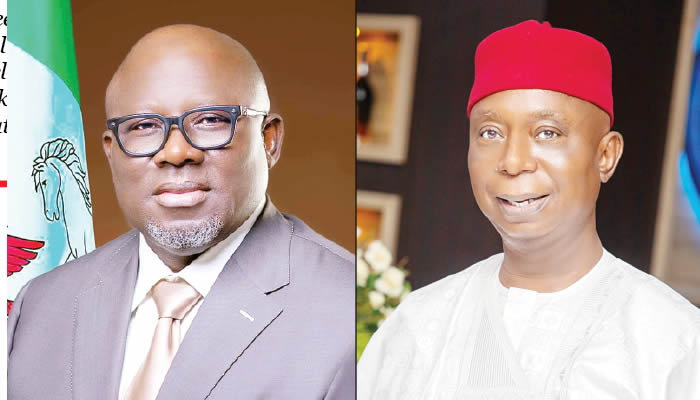The ongoing tension between Delta State Governor Sheriff Oborevwori and Senator Ned Nwoko, representing the Delta North Senatorial District, has become a significant focal point in both the political landscape and the social sphere within the state. This rivalry has sparked discussions around the Okpai Independent Power Project (IPP), which Nwoko recently highlighted, advocating for state funding to enhance the power supply to local communities. The IPP, primarily established to augment the national grid and provide 100MW of electricity, has been a point of contention since its inception, with various stakeholders questioning the funding and execution of related projects. Nwoko’s call for the governor to allocate state funds has drawn sharp responses from Oborevwori’s administration, emphasizing the separation of powers and the senator’s legislative responsibilities.
In his criticism, Oborevwori’s Executive Assistant on Public Enlightenment, Olisa Ifeajika, stressed that Nwoko should not exert pressure on the state government regarding a federal project. Instead, he should collaborate with other National Assembly members and seek support from the federal government to address the project’s funding and execution. Additionally, Ifeajika noted that the senator’s insistence on pushing the governor for funding appeared to be politically motivated, attempting to manipulate public sentiment in Delta North. He pointed out that the senator should prioritize pressing infrastructure issues within his constituency instead of focusing solely on the Okpai IPP, thereby highlighting potential divisive interests behind Nwoko’s actions.
Further deepening the discord, Oborevwori’s aides accused Nwoko of seeking personal political gain, claiming that his advocacy for the Okpai project was more about safeguarding his position in the face of potential challenges from former governor Ifeanyi Okowa in the upcoming 2027 elections. The governor’s aide Fred Edoreh elaborated that Nwoko’s political maneuvers aimed to create unrest among the Anioma people while undermining both former Governor Okowa and Governor Oborevwori. This perspective insinuates that Nwoko is engaging in political survival strategies, utilizing tribal sentiments and accusations of neglect to bolster his political presence and secure voter allegiance for the future elections.
Nwoko’s responses included assertions that the governor and his aides were misguided in their critiques. Chief Rich Enuenwosu, a supporter of Nwoko, argued that the senator had consistently sought dialogue rather than confrontation. He contended that Nwoko’s requests were genuine attempts to advocate for the interests of his constituents and indicated a broader concern for the state’s development, rather than a mere personal vendetta against the governor. Enuenwosu argued that the persistent focus on the Okpai IPP was a necessary discussion in the context of power supply and its direct implications for the everyday lives of Delta State citizens, thus underscoring the need for timely governmental responsiveness to the people’s concerns.
Political analyst Peter Legacy commented on the ongoing feud, suggesting that it exemplified the essential dynamics of political engagement in a democratic context. He viewed the public discourse and ensuing controversies as important vehicles for transparency and accountability, helping citizens discern which representatives were genuinely addressing their needs. According to Legacy, the political climate stimulated by these tensions reveals hidden agendas and compels elected officials to act more responsively towards community welfare. He advocated that such conflicts, while seemingly detrimental, could ultimately foster a more informed and engaged electorate, with an eye towards civic responsibility from both the executive and legislative branches.
As the conflict between Oborevwori and Nwoko continues to evolve, it reflects underlying tensions not only regarding local governance and political strategies but also the broader concerns surrounding the equitable distribution of resources and community representation. It serves as a reminder of the intricacies of political engagement and the responsibilities elected officials have towards their constituents. The outcome of this rivalry may influence voter perceptions and decisions in the future, ultimately shaping the political landscape of Delta State in the lead-up to the elections and beyond. The situation illustrates the complexity of governance and representation in contemporary Nigerian politics, where the intersection of regional interests and personal ambitions complicates the pursuit of effective public service.














